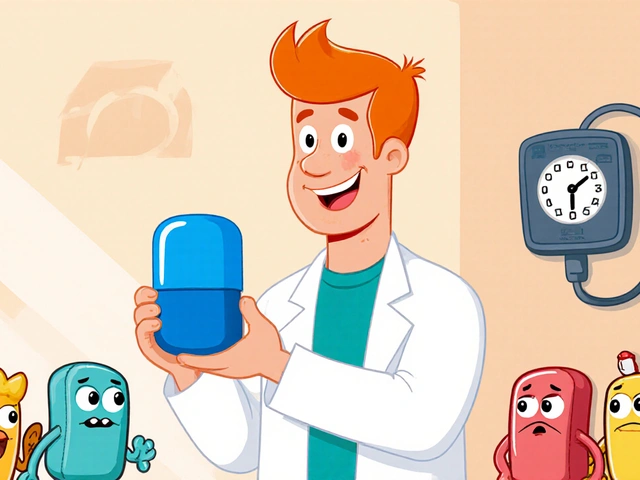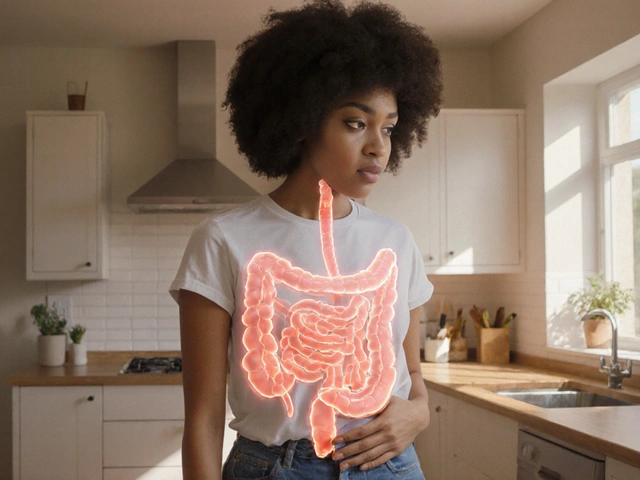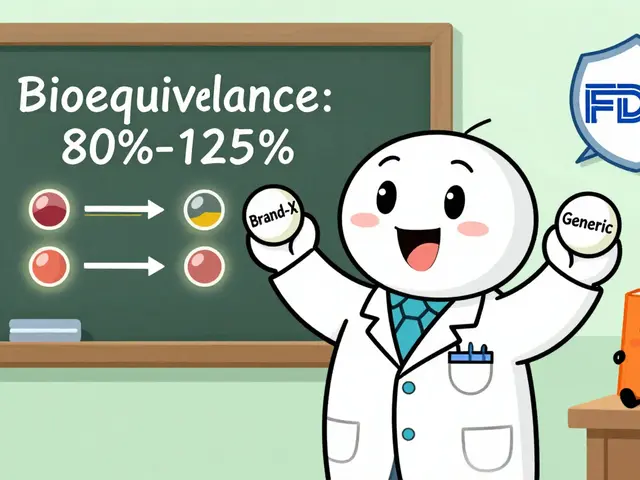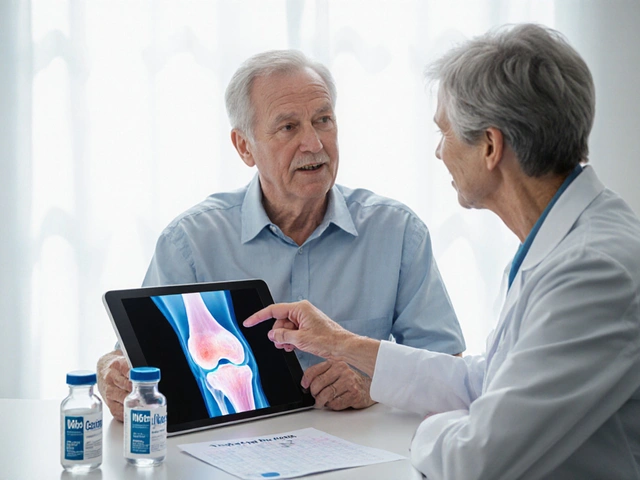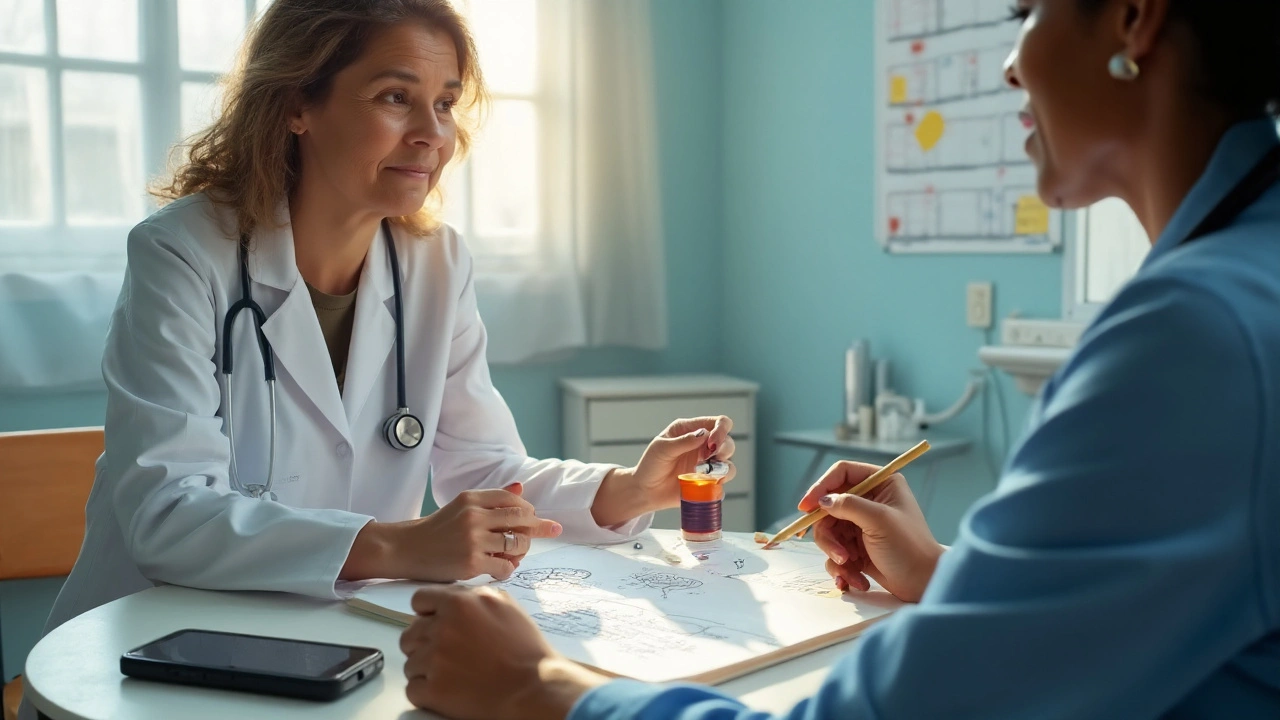
You’ve had a transient ischemic attack-or you’re caring for someone who has-and you want every safe, proven advantage to avoid a full stroke. That’s the promise of integrative care: keep the gold‑standard medical treatment, then layer on targeted lifestyle and mind-body tools that reduce risk, ease anxiety, and help you stick with the plan. This isn’t about replacing your prescription. It’s about working smarter with it.
TL;DR: What Helps TIA Patients Most, Fast
Here’s the short version I wish every family got the same week as a TIA diagnosis. It’s the blend that actually moves numbers like blood pressure, LDL, and sleep quality-the stuff that predicts stroke risk in the next days and months.
- Medical first: same‑day TIA clinic if symptoms are new; stay on antiplatelets, statins, and blood pressure meds exactly as prescribed. If you have atrial fibrillation, anticoagulation reduces stroke risk by roughly two‑thirds.
- Add lifestyle with teeth: Mediterranean‑style eating, 150 minutes of brisk activity weekly, 2 strength sessions, sleep 7-9 hours, no smoking, modest alcohol. Expect systolic BP to drop 5-10 mmHg with consistent changes-enough to cut stroke risk by about a third.
- Use mind-body work to stick with it: 10-20 minutes of breath training, yoga, or tai chi can reduce stress and lower BP a few points, making the rest doable.
- Be picky with supplements: some help specific gaps (e.g., omega‑3 for high triglycerides under a GP’s eye). Many interact with blood thinners. Always clear with your pharmacist.
- Measure what you want to improve: home BP twice daily for two weeks, lipids in 6-12 weeks after starting statins, sleep apnea evaluation if you snore or feel unrefreshed. Tweak based on data, not vibes.
Think of integrative medicine as teamwork across GP, stroke clinic, diet, movement, sleep, and stress. Done together, it builds a real margin of safety.
How Integrative Care Fits Into Gold‑Standard TIA Treatment
TIA is a “warning stroke.” Symptoms clear within 24 hours, but the risk of a disabling stroke is highest in the next 48 hours and remains elevated over 90 days. UK services are set up for speed: urgent same‑day assessment is standard, and most of us in the UK will be seen in a rapid access TIA clinic. The priority is to identify the cause and plug the biggest holes first.
Core medical pieces (keep them front and center):
- Antiplatelets: aspirin or clopidogrel; sometimes a short course of dual therapy early on if advised by the stroke team.
- Anticoagulation: if the cause is atrial fibrillation, direct oral anticoagulants (like apixaban) cut stroke risk dramatically compared with no treatment.
- Statins: high‑intensity therapy aims for LDL reduction; UK targets often push LDL under 1.8 mmol/L, or at least a 50% drop from baseline.
- Blood pressure: most guidelines aim for under 130/80 mmHg if tolerated after the acute phase.
- Carotid disease: if there’s severe narrowing on one side that matches symptoms, surgery or stenting can lower future stroke risk when done quickly.
Where integrative care comes in is adherence, habit change, and the “hidden risk” categories that sap resilience: sleep apnea, inactivity, high salt intake, smoking, unmanaged stress, and heavy drinking. UK NICE guidance (Stroke and TIA, NG128, updates through 2024) and AHA/ASA secondary prevention guidelines are aligned on this: treat the cause, then systematically tighten risk factors. Integrative strategies make that systematic part achievable for normal people with jobs, families, and messy calendars.
A few pragmatic truths from clinic and community:
- Each 10 mmHg drop in systolic BP delivers roughly a 35-40% lower stroke risk. This dwarfs the effect of nearly any single supplement.
- Smoking cessation yields big gains fast. Within a year, stroke risk falls sharply; within 5 years, it approaches the level of someone who never smoked.
- Mediterranean‑style eating patterns lower cardiovascular events. Trials like PREDIMED showed meaningful risk reductions, including for stroke, with extra‑virgin olive oil or nuts added to a plant‑forward base.
- Sleep apnea is common after TIA and stroke. Treating it improves daytime function and blood pressure, even when cardiovascular outcome trials are mixed.
That’s the frame. You keep the proven medicines and procedures, then you layer lifestyle and mind-body tools to lock in the wins and smooth out the daily bumps.
Step‑by‑Step Plan: Build Your Personal Integrative TIA Program
Think jobs to be done-simple, sequential, and trackable. Here’s a practical path that works for most people I’ve seen navigate this in the UK.
-
Stabilise and confirm the cause. If symptoms are new, call emergency services-don’t wait. If you’re past the first days, confirm your plan with the TIA clinic or GP. Ask: what likely caused it (small vessel disease, AF, carotid plaque, other)? The answer guides which lever matters most.
-
Lock down the meds. Set alarms for antiplatelet or anticoagulant doses. Place weekly pill organisers where you charge your phone. If cost or side effects are an issue, tell your GP-there’s nearly always an alternative regimen.
-
Make blood pressure boring. Buy a validated upper‑arm monitor. For two weeks: measure morning and evening, seated, after five minutes of rest. Note readings. Bring the log to your GP. Aim for under 130/80 mmHg if you can tolerate it, guided by your team.
-
Eat like your arteries matter. Think Mediterranean pattern: vegetables and fruit at most meals; whole grains (oats, barley, whole‑wheat); beans, lentils; nuts/seeds; olive oil as the main fat; fish 2-3 times a week; minimal processed meats. Practical UK swaps: olive oil for butter; porridge with berries for breakfast; chickpea curry or lentil soup for quick dinners; a small handful of unsalted mixed nuts as snacks. Keep salt under ~5-6 g/day (2-2.4 g sodium). Read labels; most salt comes from bread, sauces, and ready meals.
-
Move with a plan, not guilt. Target 150 minutes a week of moderate effort (a brisk walk where you can talk but not sing), plus 2 strength sessions focused on legs, core, and push/pull. If you’re deconditioned, start with 10 minutes after two meals daily. Add a 5‑minute balance routine (stand on one leg while brushing teeth) to reduce fall risk.
-
Sleep and stress as performance tools. Snoring, gasping, or daytime sleepiness? Ask about sleep apnea testing. For stress, pick one practice you’ll actually do: box breathing (4‑4‑4‑4), a 10‑minute yoga flow, or a tai chi video. Schedule it right before the time of day you usually reach for snacks or a drink.
-
Alcohol and tobacco. No smoking, full stop. For alcohol, aim for alcohol‑free days and keep within UK low‑risk guidance. Heavy drinking spikes blood pressure and AF risk.
-
Supplements: choose only by need. If triglycerides are high, your clinician might suggest a purified omega‑3. If you’re plant‑based, check B12. Avoid “natural blood thinners” like ginkgo, ginseng, turmeric/curcumin, or high‑dose garlic while on antiplatelets/anticoagulants unless your stroke team and pharmacist explicitly approve.
-
Build your team. In the UK, you can get dietitian support through your GP. Cardiac or stroke rehab classes often take mixed referrals; ask what’s available locally. Community pharmacists are brilliant for medicine reviews and interaction checks.
-
Track, review, adjust. Repeat lipids at 6-12 weeks after starting or changing statins. Review BP logs monthly until stable. If you plateau, change one thing at a time (e.g., add 10 minutes of walking after lunch daily, or swap processed snacks for nuts/fruit).
Two quick lived‑in tips from family life here in Edinburgh: batch‑cook a pot of lentil soup on Sunday so weeknights are simpler, and make walks social. I take Micah on scooter‑paced loops around the Meadows-it turns exercise into a habit, not a chore.
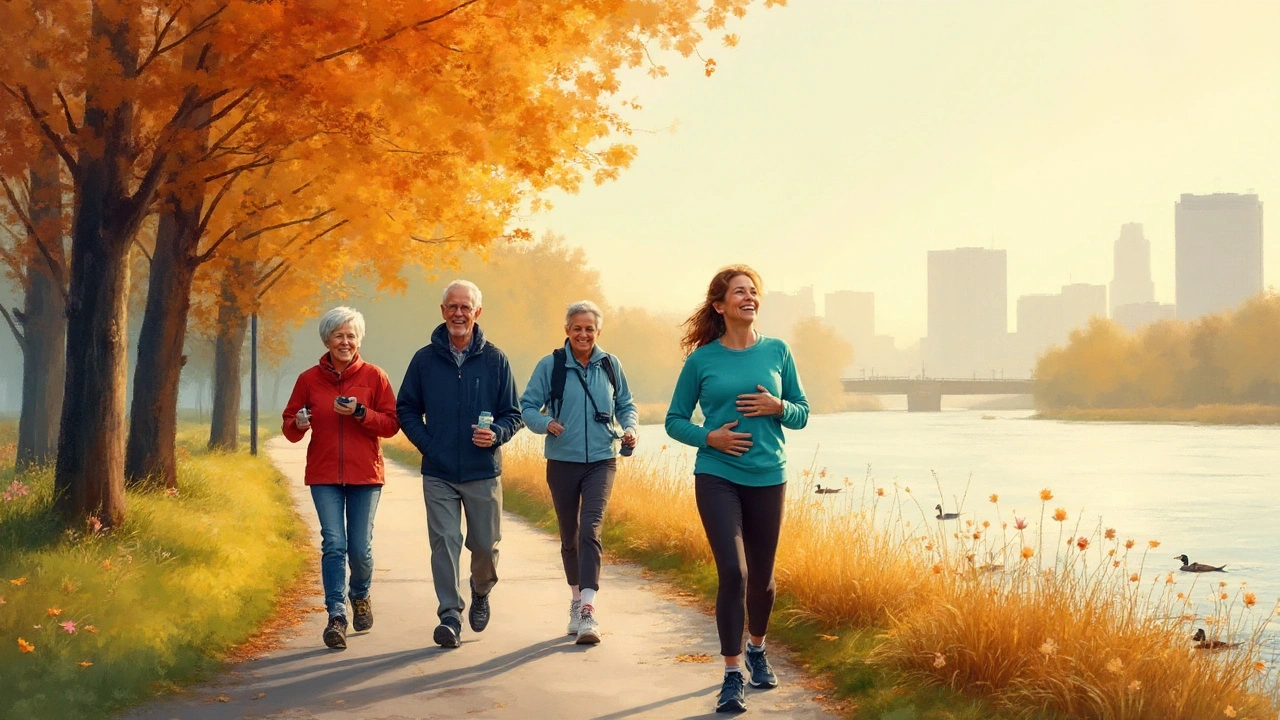
Evidence, Risks, and Trade‑offs: What Actually Helps
Not everything labeled “integrative” helps prevent stroke. Here’s a straight read of where the evidence stands and what to watch for if you’re on antiplatelets or anticoagulants.
| Intervention | Evidence for TIA/Stroke Prevention | Typical Effect Size | Risks/Notes |
|---|---|---|---|
| Mediterranean‑style diet (extra‑virgin olive oil/nuts) | Randomized trials show fewer cardiovascular events; stroke reduction seen in subgroups | Meaningful risk reduction over years; improves LDL, BP, inflammation | Watch portions if weight loss is a goal; use nuts/olive oil as replacements, not add‑ons |
| Blood pressure control | Strong guideline consensus; major determinant of recurrent stroke risk | ~35-40% risk reduction per 10 mmHg systolic drop | Monitor for dizziness; personalise targets with your clinician |
| Smoking cessation | Large observational evidence; clear risk reduction | Risk falls rapidly within 1-5 years | Use NHS stop‑smoking services; combine counselling + pharmacotherapy |
| Physical activity (150 min/week + strength) | Reduces BP, improves lipids, insulin sensitivity | SBP drop 4-8 mmHg; better vascular function | Build gradually after medical clearance; include balance work |
| Sleep apnea diagnosis and CPAP if indicated | Improves BP and daytime function; mixed hard‑outcome trials | BP drop a few mmHg; symptom gains substantial | Adherence matters; ask for mask fitting and follow‑up support |
| Mind-body (yoga, tai chi, breath training) | Meta‑analyses show modest BP and stress reductions | SBP drop 3-5 mmHg; adherence booster | Adjunct only; should not replace medication |
| Acupuncture | Mixed/low‑quality evidence for prevention; some rehab symptom relief reports | Unclear prevention benefit | Use as comfort add‑on; do not alter antithrombotics without approval |
| Omega‑3 (purified EPA for high triglycerides) | Benefit in specific high‑trig groups; not universal | Event reduction in select patients | High doses can raise AF risk in some; coordinate with GP |
| B12, folate (if deficient) | Correcting deficiency helps homocysteine; benefit seen in low‑folate regions | Modest; person‑dependent | Test first; don’t megadose |
| Herbal “blood thinners” (ginkgo, ginseng, turmeric, garlic) | No prevention benefit that outweighs risks with antithrombotics | - | Bleeding risk; avoid unless specialist approves |
| Red yeast rice | Contains statin‑like compounds; variable potency | LDL lowering if product is potent | Inconsistent dosing; potential liver/muscle side effects; not a safer statin |
Medication interactions to flag with your pharmacist:
- Anticoagulants/antiplatelets (apixaban, rivaroxaban, warfarin, aspirin, clopidogrel) plus ginkgo, ginseng, turmeric/curcumin, garlic, or high‑dose fish oil: bleeding risk.
- Warfarin plus CoQ10 or St John’s wort: can reduce warfarin effect and destabilise INR.
- Statins plus grapefruit: increases statin levels for certain drugs; ask which statin you’re on.
- Many “detox” powders hide caffeine or synephrine: can spike BP and trigger arrhythmias.
Diet debates you might hear, decoded:
- Keto: can drop weight and triglycerides but can raise LDL for some. After TIA, a fibre‑rich Mediterranean approach has stronger long‑term stroke data.
- Plant‑based: great for lipids and BP. Mind B12, iodine, iron, and omega‑3 (ALA from flax/chia; consider algae‑based DHA/EPA if advised).
- Intermittent fasting: if it helps calorie control and BP without hypoglycaemia, fine. Don’t skip blood pressure or anticoagulant doses to fit a “window.”
One last risk that hides in plain sight: dehydration during illness. Vomiting or diarrhoea can concentrate the blood and swing blood pressure. If you’re on diuretics or ACE inhibitors and get unwell, ask your GP about a “sick‑day rules” card so you know what to pause and when to restart.
Tools: Checklists, Examples, and Mini‑FAQ
Use these to make the plan friction‑light.
Clinic conversation checklist
- What likely caused my TIA?
- What’s my blood pressure and LDL target? By when?
- Do I need anticoagulation or only antiplatelets?
- Should I be screened for sleep apnea?
- Any reason to see a dietitian or rehab program near me?
- Which supplements should I avoid with my medicines?
- When should I repeat bloods and follow‑up?
Week‑one routine (low effort, high return)
- Food: swap butter for olive oil; add a big salad or veg soup daily; fish twice this week; nuts as snacks.
- Movement: 10 minutes after two meals each day; one strength session using body weight.
- Sleep: in bed at a consistent time; reduce screens 30 minutes before.
- Stress: 5 minutes of box breathing after work or right before your hungriest hour.
- Tracking: BP morning and evening; write it down.
Supplement safety check
- Purpose: what biomarker or symptom am I targeting?
- Evidence: is there data for people like me (age, meds, risk)?
- Interactions: pharmacist review done?
- Duration: when will I reassess and stop if no benefit?
Red‑flag reminders
- Any new neurological symptoms (weakness, speech trouble, vision changes) → emergency services immediately.
- Black stools, vomiting blood, unusual bruising while on blood thinners → urgent medical help.
- Severe headache unlike anything before, especially with neck pain or exertion → get checked urgently.
Local realities (UK)
- Driving: after a TIA, you must stop driving for at least one month and only resume if your doctor agrees it’s safe, per DVLA rules.
- NHS services: stroke/TIA clinics, community rehab, and stop‑smoking services are available via GP referral. Community pharmacies can check BP and review meds.
Mini‑FAQ
Can I stop aspirin or clopidogrel if my diet is “perfect” now?
No. Diet and movement help the most when added to-not instead of-antiplatelets or anticoagulants. Only your stroke team should change these.
Is acupuncture useful?
It may help with post‑stroke pain or spasticity for some people, but evidence for preventing another TIA/stroke is weak. Use it as an add‑on for comfort, not as prevention.
What about coffee?
Moderate coffee intake is generally fine. Watch energy drinks and high‑caffeine supplements that spike heart rate or BP.
Should I take magnesium?
If you’re deficient, yes-correcting deficiency can help BP and sleep. For most people, food sources and a balanced diet do the job. Check interactions if you take certain antibiotics or thyroid meds.
Cold plunges or saunas?
Saunas can help relaxation and BP in some studies; cold plunges spike BP briefly. If you have unstable BP or heart disease, speak to your clinician first and avoid extremes.
Hormone therapy?
For women, decisions around HRT after TIA are nuanced and depend on clotting risk and delivery method. Discuss with a clinician experienced in both stroke risk and menopause care.
Vaccines?
Stay current with flu and COVID vaccines; respiratory infections can destabilise BP and trigger cardiovascular events.
Two real‑world scenarios
Scenario A: High blood pressure is the driver. Your home readings average 148/88 mmHg. You add a daily 20‑minute walk after dinner, switch to a lower‑salt breakfast (porridge with berries), and your GP adjusts your ACE inhibitor dose. In four weeks, your average is 132/80. You’re in the safer zone without heroic effort.
Scenario B: Triglycerides and snoring. You’ve got high triglycerides and daytime sleepiness. A sleep study confirms moderate apnea; you start CPAP and learn to use it comfortably. Your GP considers a purified EPA if triglycerides stay high despite diet. Energy improves, BP eases, and you actually feel like cooking again.
Next Steps and Troubleshooting
If you’re ready to act this week, here’s a tight sequence that respects time and gives quick feedback.
- Set up your medication system today: phone alarms and a pill organiser.
- Buy a validated BP cuff; log readings morning and evening for 14 days.
- Pick three food swaps and lock them in: olive oil for butter; veg at lunch; fish twice this week.
- Schedule movement: 10-20 minutes after two meals each day. Add one short strength session.
- Book a GP review in 2-4 weeks with your BP log and a list of questions.
- Ask about sleep apnea screening if snoring or daytime sleepiness is present.
- Run any supplement ideas past your pharmacist before buying.
Troubleshooting by persona:
- The busy carer: Use supermarket shortcuts: pre‑washed salad, frozen mixed veg, tinned beans, microwavable whole‑grain packets. Ten‑minute walks while on kids’ activities.
- The numbers person: Track BP, step count, and sleep duration. Aim for trends, not perfection. Review every Sunday; change one variable at a time.
- The anxious sleeper: Create a wind‑down: hot shower, dim lights, no news, 5 minutes of slow breathing. If insomnia persists, ask about CBT‑I resources.
- The supplement enthusiast: Agree on one biomarker (e.g., triglycerides) and a 90‑day trial with your GP. Stop if no measurable gain or if side effects show up.
Credible sources that guide the above include UK NICE Stroke and TIA guideline NG128 (updates through 2024), the 2021 AHA/ASA guideline for secondary stroke prevention, and large nutrition and blood‑pressure trials such as PREDIMED and DASH. Your personal plan should follow your clinic’s advice, since cause and risk vary a lot person to person.
Do the medical basics without fail, then layer in diet, movement, sleep, and stress tools you’ll actually keep doing. That’s the heart of integrative care-and it’s how you turn a frightening warning into a clear plan.

